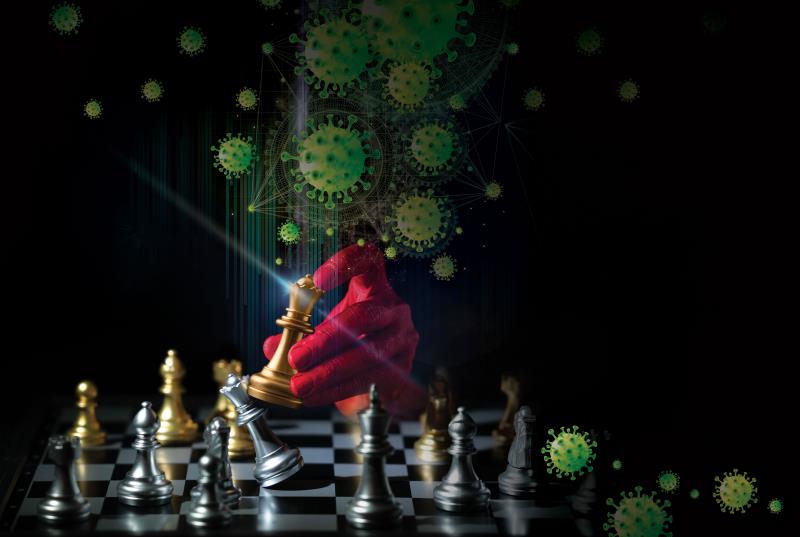Are we winning the fight against COVID-19?





Eight months into the pandemic, the world is still in the heat of fighting a contagion that we’ve no treatment for and no protection from. So far, what we’re able to achieve is a stalemate against COVID-19. Science remains our best hope – a vaccine against SARS-COV-2 with long-lasting protection.
It may be riskier not to take the risk. Russia made headlines recently when it announced its Health Ministry’s approval of the “world’s first vaccine” against COVID-19. It was named Sputnik V, in reference to the first satellite it launched into orbit in 1957, signalling the start of an eventual space race with the US.
Why the haste?
Experts questioned the speed at which Sputnik V was tested – barely 2 months in small-scale studies, the results of which have not been published. They said the approval was a hometown win, but one that is at risk of backfiring.
Mr Denis Logunov, deputy director for scientific work at Gamaleya Research Institute of Epidemiology and Microbiology, which developed Sputnik V jointly with the Russian Defence Ministry, later explained that the vaccine has been approved under a “conditional registration certificate” which means the government is obligated to conduct additional expanded clinical trials. He added that plans are in place for a phase III trial involving 40,000 volunteers. Yet, full-scale vaccine production is reported to be underway.
More infectious strain in the air?
On the heels of multicountry transmissions, Malaysia’s director-general of health Tan Sri Dr Noor Hisham Abdullah urged greater public vigilance after local authorities detected D614G mutation of the coronavirus, which was described as “10 times more infectious than the original strain.”
Singapore confirmed the variant had been found in the island-state in February but had since been contained. Dr Paul Tambyah, senior consultant at the National University of Singapore and president-elect of the International Society of Infectious Diseases, said it might be a “good thing to have a virus that is more infectious but is less deadly.”
He said most viruses, in fact, tend to become less virulent as they mutate. “Evidence showed the proliferation of the D614G mutation in some parts of the world has coincided with a reduction in death rates, suggesting that it is less lethal.”
The WHO also assured there was no evidence the mutation can trigger a more severe disease.
Does this make potential vaccines less effective?
Dr Sebastian Maurer-Stroh, deputy executive director of Research, A*STAR’s Bioinformatics Institute, Singapore, said the variants are almost identical and did not change areas the immune system typically recognizes. “There shouldn’t be any difference for vaccines in development.”
A non-peer reviewed paper released earlier also purportedly described the emergence of a more transmissible form of the coronavirus. [bioRxiv 2020;doi:10.1101/2020.04.29.0 69054] The story was picked up by online media and went viral.
Dr Lisa Gralinski, assistant professor of epidemiology at the University of North Carolina’s Gillings School of Global Public Health, Chapel Hill, North Carolina, US, commented that the claims were “plausible but not justified by the evidence” on hand. This presents further confusion in a crisis already riddled with uncertainties.
She said more definitive evidence comparing coronavirus spread among individuals infected by the D- and G-strains of viruses with reliable clinical data and viral sequences from each patient may be difficult to have at the moment.
WHO decries ‘vaccine nationalism’
Amid rising speculation for a potential vaccine, WHO chief Dr Tedros Adhanom Ghebreyesus sounded off the alarm: Countries hoarding vaccines – and striking deals with vaccine makers – for their own citizens could impede efforts to end the pandemic. “We need to avert vaccine nationalism.”
A coordinated global distribution system for COVID-19 vaccines that prioritize individuals at greatest risk of contracting the disease (ie, healthcare workers) would help curb coronavirus transmission globally. This, the WHO hopes to achieve, through its COVAX* Facility programme which aims to distribute equitably 2 billion doses of approved COVID-19 vaccine in 2021.
In the treatment arena, the US FDA has announced emergency use authorization for convalescent plasma, obtained from patients who recovered from COVID-19 and developed anti-SARS-CoV-2 antibodies, to reduce mortality in hospitalized patients. [https://www.fda.gov/news-events/press-announcements/fda-issues-emergency-use-authorization-convalescent-plasma-potential-promising-covid-19-treatment, accessed 25 August 2020]
The agency said it is reasonable to believe COVID-19 convalescent plasma may be effective in reducing the severity or shortening the duration of COVID-19 in some hospitalized patients, but randomized controlled trials are still recommended.